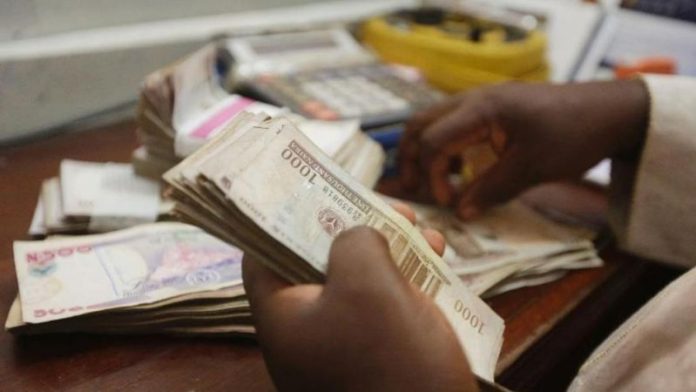After experiencing several days of volatility, the Nigerian naira displayed signs of resilience on Tuesday as it rebounded at the official Investors and Exporters (I&E) Window. The local currency closed at N878.61 against the US dollar, showcasing a significant improvement from the N925.34/$1 recorded on Monday.
This recent development marks a noteworthy recovery in the value of the naira, which had faced challenges and depreciated to over N1,000 per dollar at the official window just over a week ago.
The pressure on the local currency in recent days has been attributed to lingering foreign exchange shortages. Analysts and stakeholders have linked the latest challenges to the alleged hoarding of the US dollar by some bank customers.
At the parallel market on Tuesday, the naira closed flat at N1,365 per dollar, maintaining a similar level to Monday’s closing rate.
This development represents a slight pause in the consistent decline of the naira at the black market, where it had slid from N1,200 per dollar to over N1,300 per dollar about a week ago.
A Bureau De Change operator in Zone 4, Abuja, known as Suraju Sani, reported that the dollar was sold at N1,350 to the naira in the capital city. He specified, “Dollar is now N1,350. That’s the highest I can buy, and I can’t go beyond that amount. I sell between N1,360 and N1,365.”
Another operator, Ibrahim Yahu, mentioned that he could only sell the dollar at the rate of N1,360.
According to Aboki FX, the naira maintained stability for the second consecutive day after closing at N1,365/$1 on Monday.
Data from the FMDQ Securities Exchange, an official platform overseeing foreign exchange trading, revealed that the naira made a recovery of N46.73 against the US dollar. The naira appreciated from N925.34/$1 on Monday, January 23, 2024, to N878.61/$1 on Tuesday, January 24, 2024.
The stabilization of the naira followed a report from the Central Bank of Nigeria, indicating that Nigerians spent $1.58 billion on health tourism, foreign education, and other personal matters in the first six months of 2023. The data from the apex bank’s Balance of Payment compilation revealed expenditures of $245.68 million on overseas health-related issues, $896.09 million on foreign education, and $434.63 million on other personal foreign needs.













